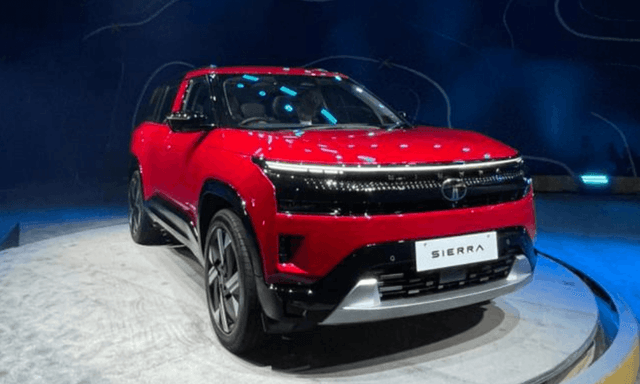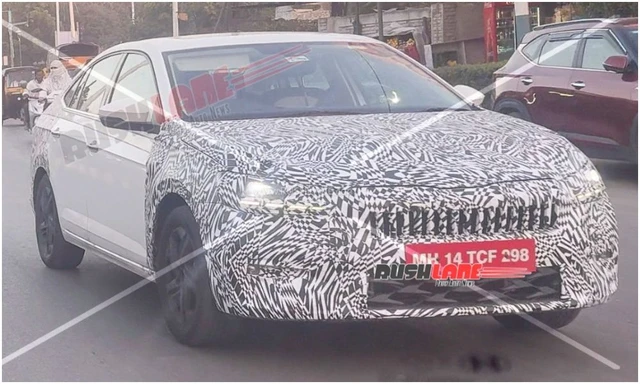Helmet Safety Norms To Be Revised; Sale Of Imported Helmets Allowed

- The revised regulations remove the 1.2 kg weight cap for helmets sold
- There are no changes in the BIS testing standards implemented in 2018
- Helmet sales are expected to grow as safety regulations change in India
The Bureau of Indian Standards (BIS) will be implementing a new notification for two-wheeler helmet standards from September 4, 2020. According to a recent report, the new norms will see the 1.2 kg weight limit for helmets being done away with, which was implemented in 2018. The rule restricted the sale of imported helmets in India that did not carry the ISI mark and weighed considerably more than the weight cap under the BIS norms. However, the revised standard will allow the sale of imported helmets, though they will still need to comply with the Indian Standard (IS) norms.
Also Read: BIS Introduces New Standards For ISI Motorcycle Helmets

The new rule will encourage customers to freely purchase premium helmets without governance issues
The BIS had previously announced a weight cap from 700 grams to 1.2 kg on helmets sold in India, which also needed to carry the ISI certification mark. The rule was implemented after a change in the testing regulations by the transport ministry and was intended to curb the sale of cheap helmets that provided little to no protection. However, the more expensive and safer helmets that are imported in the country also had to bear the brunt of the blanket ban considering they do not carry an ISI mark nor weigh under 1.2 kg.
Nevertheless, the government did invite representatives from different players who highlighted the importance of better quality and safer helmets and why the access to purchase the same should not be blocked. The report further states that the transport ministry will issue a final notification soon for mandatory IS certification for helmets sold in India.
Also Read: New European Certification Rules To Make Helmets Safer, More Expensive

The helmet safety standards in developed markets have been constantly updated for enhanced safety levels
Quoting an official from the transport ministry who wished to remain anonymous, the report said, "We will give six months time for the quality control order (QCO) from the date of final notification to give enough time to all players to comply with the BIS norms. After the deadline, selling non-ISI helmets will be an offence."
Speaking to carandbike on the revised helmet regulations, Rajiv Kapur, MD - Steelbird Hi-Tech and President of Two-Wheeler Helmet Manufacturers Association said, "Due to the removal of the base (weight) cap, be it DOT standard, European helmets and other imported helmets, they can also qualify for ISI standard and the Indian government can allow for the import of the sales. Manufacturers producing European standard helmets in India can also have dual certification with the ISI mark, as well as CE or DOT mark on the helmets for sale in India."

The revised regulations announced in 2018 brought new and safer testing standards for helmets
Kapur added that 95 per cent of the helmet sales in India are for offerings between 700 grams and 1.2 kg. The move though is very good for motorcycle customers as well as manufacturers. Elaborating on the growth of the helmet market, he said that the segment is expected to grow exponentially in the coming years as helmet laws become mandatory in all parts of the country. Rules mandating the purchase of a helmet at the time of buying a two-wheeler will help boost sales, while the shift to personal mobility in the current times will also improve the sale of the safety gear.
The number of imported helmets sold in India is less than one lakh units per annum but the segment is expected to show immense growth with the rise in popularity of premium motorcycles and increased awareness towards safer riding. Earlier this year, the UN Body which sets safety standards for motorcycle helmets in Europe announced a major update to the ECE 22.05 test regime. The comprehensively updated standard will be called the ECE 22.06 and will be implemented from 2023 to keep up with the latest technology and research.
Source: TOI
Trending News
Latest News
 car&bike Team | Dec 14, 2025Top-Spec Tata Sierra Accomplished, Accomplished+ Prices RevealedRegardless of the powertrain combination chosen, all Tata Sierra Accomplished+ trims cost upwards of Rs 20 lakh (ex-showroom).2 mins read
car&bike Team | Dec 14, 2025Top-Spec Tata Sierra Accomplished, Accomplished+ Prices RevealedRegardless of the powertrain combination chosen, all Tata Sierra Accomplished+ trims cost upwards of Rs 20 lakh (ex-showroom).2 mins read car&bike Team | Dec 13, 2025Skoda Slavia Facelift Spied Testing Again Ahead Of DebutThe facelifted Slavia is expected to debut in 2026 as Skoda-VW India looks to refresh its India 2.0 range.1 min read
car&bike Team | Dec 13, 2025Skoda Slavia Facelift Spied Testing Again Ahead Of DebutThe facelifted Slavia is expected to debut in 2026 as Skoda-VW India looks to refresh its India 2.0 range.1 min read car&bike Team | Dec 13, 20252026 MG Hector Facelift Interior Previewed Ahead Of DebutLatest teaser video of the upcoming Hector facelift suggests minimal cosmetic changes to the interior as well as reveals a new alloy-wheel design.1 min read
car&bike Team | Dec 13, 20252026 MG Hector Facelift Interior Previewed Ahead Of DebutLatest teaser video of the upcoming Hector facelift suggests minimal cosmetic changes to the interior as well as reveals a new alloy-wheel design.1 min read Jaiveer Mehra | Dec 13, 2025Passenger Vehicle, Two-Wheeler Sales Surge In November 2025: SIAMBoth segments reported a growth in the region of 20 per cent, though year-to-date sales growth in FY2026 was notably flatter at around 3 per cent.1 min read
Jaiveer Mehra | Dec 13, 2025Passenger Vehicle, Two-Wheeler Sales Surge In November 2025: SIAMBoth segments reported a growth in the region of 20 per cent, though year-to-date sales growth in FY2026 was notably flatter at around 3 per cent.1 min read car&bike Team | Dec 12, 2025Nissan Entry MPV Design To Be Unveiled On December 18New MPV to be the first of three new models for India by Nissan, alongside the Tekton and a three-row SUV.1 min read
car&bike Team | Dec 12, 2025Nissan Entry MPV Design To Be Unveiled On December 18New MPV to be the first of three new models for India by Nissan, alongside the Tekton and a three-row SUV.1 min read Jaiveer Mehra | Dec 12, 2025New Mini Convertible Launched At Rs 58.50 LakhDrop-top variant of the iconic Cooper hatchback available in a single Cooper S spec.1 min read
Jaiveer Mehra | Dec 12, 2025New Mini Convertible Launched At Rs 58.50 LakhDrop-top variant of the iconic Cooper hatchback available in a single Cooper S spec.1 min read
 Janak Sorap | Dec 11, 2025Harley-Davidson X440 T First Ride Review: Smarter and SharperHarley-Davidson has taken the X440 and given it a more focused and engaging twist. The result is the X440 T—essentially the same platform but updated in areas that give the motorcycle more appeal and riders more thrill.5 mins read
Janak Sorap | Dec 11, 2025Harley-Davidson X440 T First Ride Review: Smarter and SharperHarley-Davidson has taken the X440 and given it a more focused and engaging twist. The result is the X440 T—essentially the same platform but updated in areas that give the motorcycle more appeal and riders more thrill.5 mins read Shams Raza Naqvi | Dec 10, 20252025 Mini Cooper Convertible Review: More Colour On Indian RoadsThe updated Mini Cooper Convertible is set to be launched in the Indian market in the next few days. We drive it around Jaisalmer for a quick review.1 min read
Shams Raza Naqvi | Dec 10, 20252025 Mini Cooper Convertible Review: More Colour On Indian RoadsThe updated Mini Cooper Convertible is set to be launched in the Indian market in the next few days. We drive it around Jaisalmer for a quick review.1 min read Bilal Firfiray | Dec 8, 2025Tata Sierra Review: India’s New Favourite?Marking its return after a few decades, the reborn Sierra has made everyone sit up and take notice. But is it worth the hype?10 mins read
Bilal Firfiray | Dec 8, 2025Tata Sierra Review: India’s New Favourite?Marking its return after a few decades, the reborn Sierra has made everyone sit up and take notice. But is it worth the hype?10 mins read Girish Karkera | Dec 4, 20252026 Honda Prelude First Drive: Domesticated Civic Type RA sporty-looking coupe built to give customers a taste of performance but not at the expense of everyday practicality.5 mins read
Girish Karkera | Dec 4, 20252026 Honda Prelude First Drive: Domesticated Civic Type RA sporty-looking coupe built to give customers a taste of performance but not at the expense of everyday practicality.5 mins read Seshan Vijayraghvan | Nov 29, 2025Mahindra XEV 9S First Drive Review: Big Electric SUV, Bigger ExpectationsThe XEV 9S lands at a time when the EV crowd is growing fast. It’s a big, born-electric, three-row SUV that starts under 20 lakh. It sits close to the XUV700 in size, but the brief is very different. Here’s what it’s like on the road.11 mins read
Seshan Vijayraghvan | Nov 29, 2025Mahindra XEV 9S First Drive Review: Big Electric SUV, Bigger ExpectationsThe XEV 9S lands at a time when the EV crowd is growing fast. It’s a big, born-electric, three-row SUV that starts under 20 lakh. It sits close to the XUV700 in size, but the brief is very different. Here’s what it’s like on the road.11 mins read

































































































































